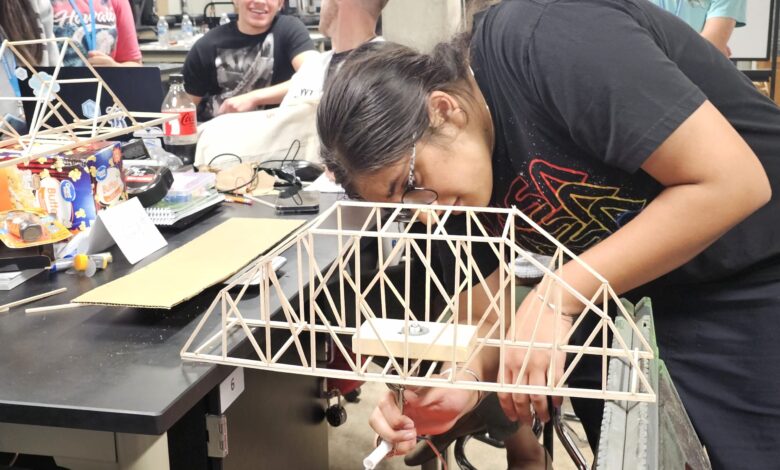Understanding the Civil Engineering Strand: A Stepping Stone to Building the Future

If you’re someone who has ever dreamed of designing bridges, skyscrapers, or advanced infrastructure, civil engineering might be the perfect career path for you. Civil engineers play a vital role in shaping the built environment around us. They design, construct, and maintain the essential infrastructure that supports modern life, from roads and bridges to airports and water treatment plants. To start on the right foot in this challenging and rewarding field, students need to take the appropriate educational track in high school. The civil engineering strand in senior high school provides that foundation.
What is the Civil Engineering Strand?
The civil engineering strand is a specialized track offered under the Science, Technology, Engineering, and Mathematics (STEM) academic strand in senior high school. This track is designed to equip students with the knowledge and skills they need to pursue a career in civil engineering by building a strong foundation in science, mathematics, and engineering principles.
Students in the civil engineering strand will study a variety of subjects related to the physical sciences, mathematics, and technical concepts that are fundamental to civil engineering. These subjects include general mathematics, physics, chemistry, earth science, and more. The curriculum is specifically designed to help students develop critical thinking, problem-solving, and analytical skills — all essential for a successful career in engineering.
Why is the Civil Engineering Strand Important?
The civil engineering strand prepares students for the challenges they will face in both college and their future careers. Civil engineering is one of the most demanding and competitive fields of study. It requires a deep understanding of complex scientific and mathematical concepts, as well as the ability to apply this knowledge to real-world problems.
By enrolling in the civil engineering strand, students can build the necessary foundation to pursue a degree in civil engineering and succeed in this field. This strand also fosters valuable traits like resilience, creativity, and curiosity. Students are encouraged to explore engineering concepts through hands-on activities and experiments, giving them a taste of what it’s like to solve engineering challenges in the real world.
Key Subjects in the Civil Engineering Strand
The civil engineering strand introduces students to a variety of subjects that are essential for future civil engineers. These include:
- General Mathematics: A fundamental subject for solving engineering problems and calculations.
- Physics: Helps students understand the forces and materials involved in construction and engineering.
- Chemistry: Provides insights into the materials used in engineering projects and how they react in different conditions.
- Earth Science: Students learn about the geological and environmental factors that affect civil engineering projects.
- Disaster Readiness and Risk Reduction: Prepares students to design structures that are resilient to natural disasters such as earthquakes and floods.
- Pre-Calculus and Basic Calculus: Essential for solving engineering problems that involve complex mathematical calculations.
- Practical Research: Develops research skills that students will need for conducting experiments and studies in civil engineering.
- Entrepreneurship: Encourages students to think about how engineering projects can be managed and developed within the business world.
These subjects not only prepare students for college-level engineering programs but also help them understand how engineering concepts apply to the world around them.
Is the Civil Engineering Strand Right for You?
Deciding whether the civil engineering strand is the right path for you requires careful thought. Civil engineering is a highly technical field that demands an aptitude for mathematics and science, as well as a passion for problem-solving and creativity. If you’re excited about building structures, designing systems, and solving complex problems, this track could be the perfect fit for you.
Here are a few questions to consider when deciding if the civil engineering strand is right for you:
- Do you enjoy solving math and science problems?
- Are you interested in learning about building materials, structural design, and construction methods?
- Do you have a passion for improving infrastructure and making a positive impact on society?
- Are you prepared to work hard and persevere through challenging coursework?
- Are you excited to work in a dynamic and innovative field?
If you answered yes to any of these questions, the civil engineering strand may be the ideal academic track for you.
What Career Opportunities Does the Civil Engineering Strand Open Up?
Completing the civil engineering strand in senior high school prepares students for a wide range of career opportunities in the civil engineering field. Graduates can pursue careers in areas like:
- Structural Engineering: Designing and analyzing the strength and durability of structures such as bridges and buildings.
- Construction Management: Overseeing the planning and execution of construction projects.
- Geotechnical Engineering: Studying soil and rock properties to ensure the stability of construction sites.
- Transportation Engineering: Designing and improving transportation systems like roads, highways, and railways.
- Water Resources Engineering: Designing systems for managing water, such as dams, irrigation systems, and water treatment facilities.
- Environmental Engineering: Developing sustainable solutions to reduce environmental impacts in construction projects.
The civil engineering strand opens doors to a wide array of engineering careers, making it an excellent choice for students who want to make a lasting impact on the world.
Conclusion
The civil engineering strand is an excellent educational track for students interested in pursuing a career in civil engineering. With its focus on mathematics, science, and engineering principles, this strand provides students with the necessary skills and knowledge to succeed in the competitive field of civil engineering. By taking this track in senior high school, students can build a solid foundation for their future studies and career.



